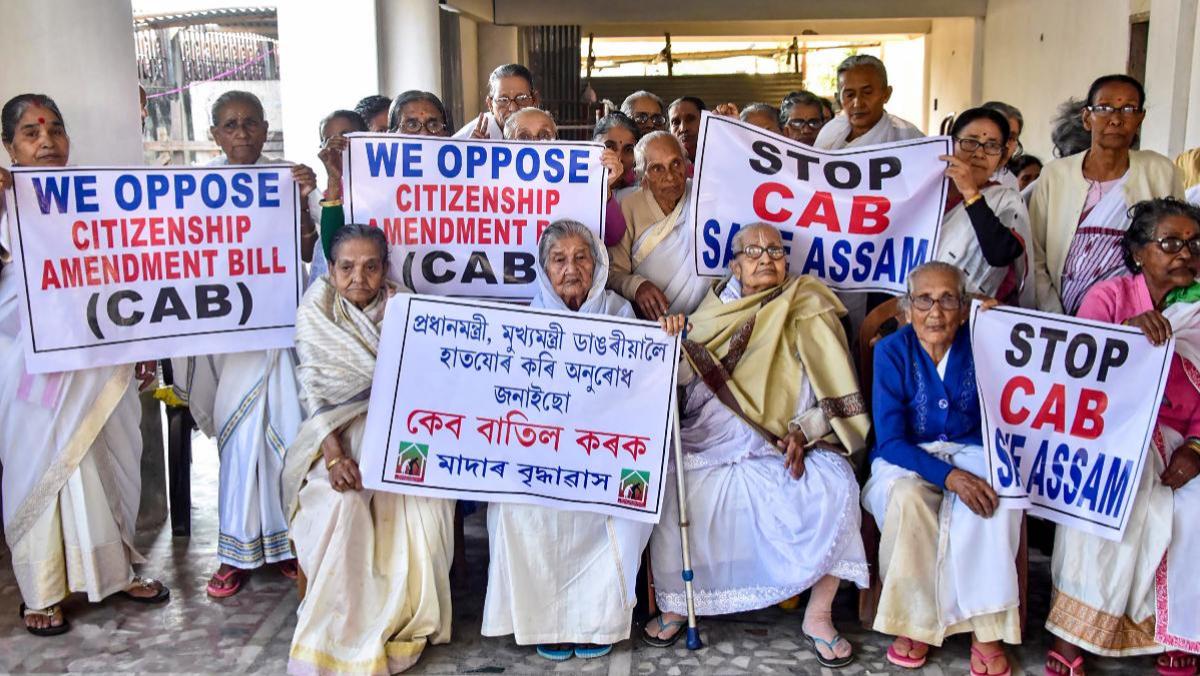


The ongoing discussions surrounding Assam's new citizenship regime have sparked debates over its exclusion of certain religious groups, specifically Muslims. However, another important aspect that has been brought to the forefront is the potential benefit this regime may have for Bengali Hindus. This exploration raises questions about the government's intentions and further highlights the complexities of citizenship laws in India.
Citizenship Regime in Assam: Implications for Bengali Hindus and Religious Exclusion
Background
The National Register of Citizens (NRC) in Assam, India, has been the subject of ongoing discussion and controversy due to its exclusion of certain religious groups, particularly Muslims. However, the regime has also raised questions about its potential impact on Bengali Hindus.
Bengali Hindus are a significant population group in Assam, with a rich history and cultural presence in the region. However, they have often faced discrimination and marginalization, particularly in the context of Assamese nationalism and the identity politics surrounding illegal immigration from neighboring Bangladesh.
New Citizenship Regime
The new citizenship regime in Assam, also known as the Citizenship (Amendment) Act (CAA), was passed in 2019. It aims to grant citizenship to non-Muslim immigrants from Afghanistan, Bangladesh, and Pakistan who have been living in India for over five years.
Implications for Bengali Hindus
The exclusion of Muslims from this regime has raised concerns among Bengali Hindus who fear that it could potentially lead to the disenfranchisement of their Muslim neighbors and a further erosion of the already fragile social fabric in Assam.
On the other hand, some Bengali Hindus argue that the regime is a necessary step to protect their community from the threat of illegal immigration. They believe that the exclusion of Muslims is justified on the basis of national security concerns and the need to preserve Assamese identity.
Top 5 FAQs and Answers
1. Why has the new citizenship regime in Assam been controversial?
It has been controversial due to its exclusion of Muslims, sparking debates over religious discrimination and the erosion of citizenship rights.
2. How does the regime potentially impact Bengali Hindus?
The regime has raised concerns among Bengali Hindus about the disenfranchisement of their Muslim neighbors and the erosion of social fabric in Assam. Others argue it protects their community from illegal immigration.
3. What are the historical factors underlying the tensions surrounding Bengali Hindus in Assam?
Bengali Hindus have faced discrimination and marginalization in the context of Assamese nationalism and the issue of illegal immigration from Bangladesh.
4. Are there any alternatives to the NRC that address the concerns of both Bengali Hindus and Muslims?
Alternative proposals include a "citizenship validation process" that would provide citizenship to all residents who can demonstrate a certain period of residency, regardless of their religion.
5. What is the government's stance on the concerns raised by Bengali Hindus and Muslims?
The government has defended the NRC, stating that it is necessary to protect Assamese identity and national security. However, it has also acknowledged the concerns of the affected communities and pledged to address them through legal and administrative measures.

The Supreme Court has granted a stay on the Kerala High Court's finding that the Munambam land in Ernakulam district is not waqf property. The Court also ordered that the current status quo of the land be maintained until the next date of hearing. Although the High Court's declaration will remain stayed, the inquiry commission headed by former judge Justice CN Ramachandran Nair can continue to function. The case involves a dispute over 135 acres of land that was originally gifted to Farook College, now facing protests and challenges from the local residents.

The passing of former Union Home Minister and Congress heavyweight Shivraj Patil has left a void in the political landscape of Maharashtra. His tenure in the Ministry of Home Affairs was marked by several contentious moments, including controversies over his response to terror attacks and criticism over his attire during a national security crisis. His resignation after the 26/11 attacks in Mumbai had a lasting impact on his reputation, as leaked US diplomatic cables described him as "spectacularly inept". Despite this, Patil is being fondly remembered by Congress leaders for his dedication to public service and contributions to the nation's democratic institutions.

Delhi Police Commissioner Rakesh Asthana was honoured during the 'Khaki Ke Sang Shiksha Aur Umang - YUVA Mashaal' programme at Begumpur, Delhi. The event, hosted by the Rohini District, aimed to recognize the efforts of Grameen Police Sahyog Samiti members and social workers in bringing positive changes to the society. Asthana was presented with a turban by elderly persons and also honoured renowned Olympic Champion wrestler Ravi Dahiya. The programme also aimed to spread awareness about the community outreach initiatives of Delhi Police among residents.

The Lok Sabha erupted into chaos as discussions on electoral reforms turned into a heated confrontation between opposition leader Rahul Gandhi and Home Minister Amit Shah. Gandhi challenged Shah to a debate on 'vote theft' allegations, while Congress MP Gaurav Gogoi expressed dissatisfaction with Shah's response to the opposition's concerns. As the opposition staged a walkout, BJP MP Tejasvi Surya criticized the move and praised Shah's speech for effectively countering their propaganda. Prime Minister Narendra Modi also commended Shah for exposing the lies of the opposition.

Former JNU student and activist Umar Khalid, who is an accused in the Delhi riots conspiracy case, has been granted interim bail for 14 days to attend his sister's wedding on December 27. This comes after multiple failed attempts to secure bail, with the court allowing temporary relief for family reasons. Khalid has been instructed to stay away from social media and can only meet family members, relatives, and close friends during the bail period.

The Maharashtra Assembly was in chaos as opposition parties raised concerns over the recent police encounter of government consultant Rohit Arya. The lawmakers claimed that the encounter was wrongful and questioned why Arya was not just shot in the leg instead. It was revealed that Arya had worked on several government projects but had not been paid for his services, leading to the extreme step. The state government has assured an ongoing inquiry into the matter.

During a lively Question Hour in the Lok Sabha, BJP MP Anurag Thakur accused a TMC MP of smoking an e-cigarette inside the House. Speaker Om Birla promised action if a written complaint is filed, while pointing out that the use of e-cigarettes is not allowed in the Lok Sabha. The incident highlights the ongoing debate on the ban on e-cigarettes in India.

A heated commotion erupted in Parliament during Question Hour on Thursday when BJP MP Anurag Thakur accused a Trinamool Congress member of using an e-cigarette in the House, a violation of both parliamentary conduct and national law. Speaker Om Birla responded by sternly stating that no such permission existed and urged Thakur to file a complaint if he had evidence to support his allegation. Amidst the back-and-forth, Thakur questioned if e-cigarettes had been allowed in the Sadan, given their nationwide ban.

The State Election Commission has pushed back municipal elections in multiple districts of Maharashtra to December 20, causing a stir among candidates and political parties as the previous polling date was looming. The postponement is due to delays in resolving appeals filed by rejected candidates, leading to procedural errors according to the Maharashtra Municipal Election Rules. The new schedule now includes deadlines for symbol allocation, withdrawal of nominations, and voting. This move has major consequences for campaigns and may change the electoral landscape in the affected constituencies.

A mini truck carrying 17 Border Security Force personnel overturned in Kanker district, Chhattisgarh, leaving them injured. The jawans were on their way to Antagarh railway station for a leave when the accident occurred. Four of them were referred to Raipur for further treatment. The state government has declared a 'dry day' on January 22 for Ram Temple inauguration, while a 16-year-old was held hostage and raped in another incident in the state.